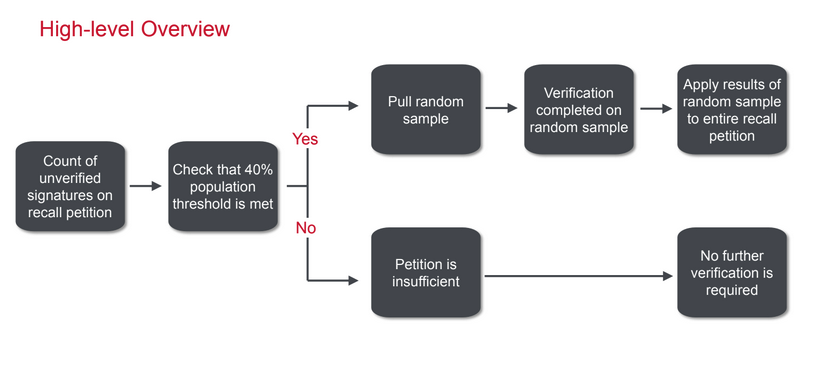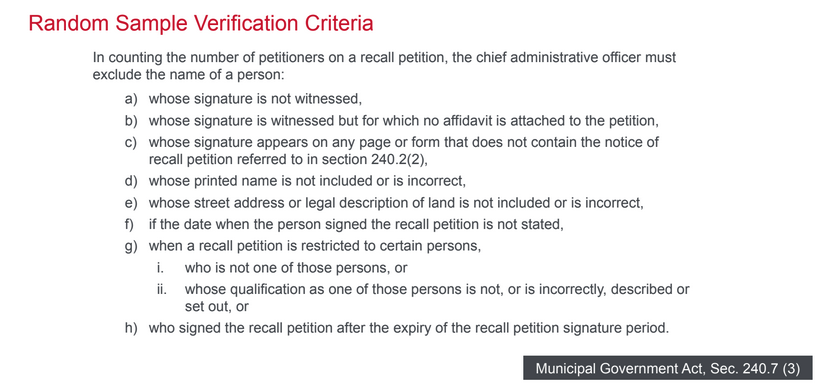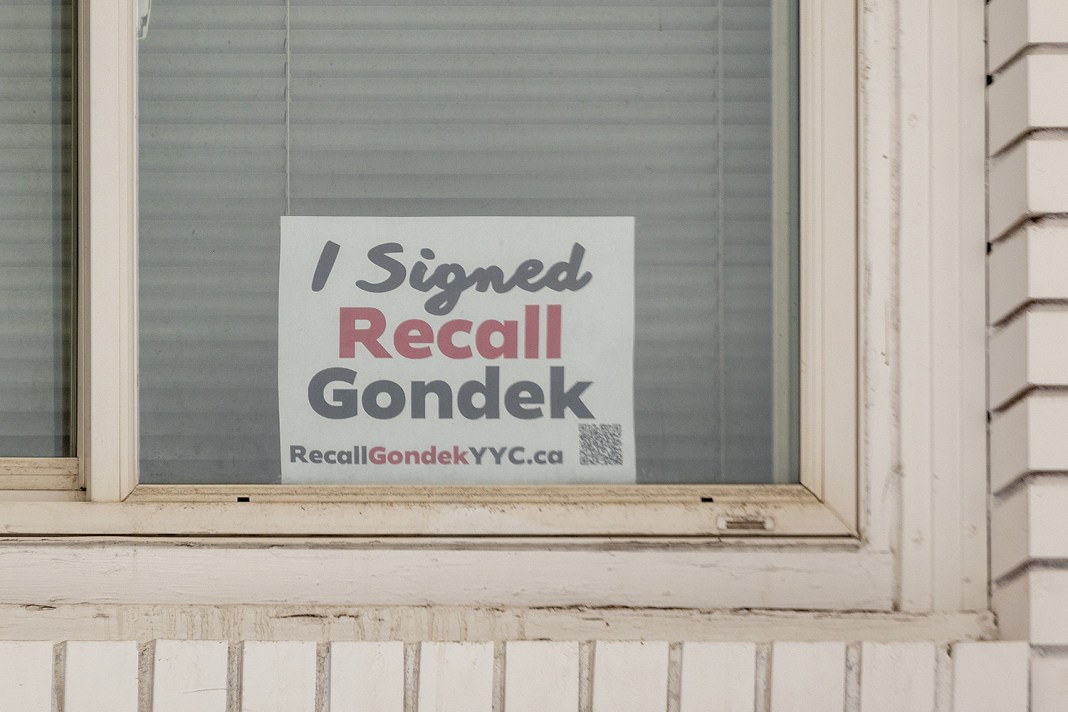Preparations are underway to accept recorded signatures from recall petitioner Landon Johnston when the deadline for the process comes up April 4.
More than 514,000 signatures will be needed to recall Calgary Mayor Jyoti Gondek, and they must be delivered to the Elections Calgary office by 4:30 p.m. on the deadline day.
Johnston launched the petition in early February, which started the clock on 60 calendar days to collect the 514,284 required signatures. Johnston has told LiveWire Calgary that issues like the Event Centre approval, along with the single-use items bylaw, sparked the petition.
Recently, after a meeting with Mayor Gondek, Johnston said that how Calgary city council – and the mayor – have handled affordability and transit safety were some of the major civic issues that are yet unsolved.

Once the signatures are delivered, there will be a full count of as-yet unverified signatures that were submitted as a part of the recall petition. That’s when they check to see if the 40 per cent (514,284 signatures) threshold is met.
“If the 40 per cent threshold of electors is reached, then the next process will be to conduct a random sample, as permitted under the Municipal Government Act, to do a verification process,” said City Clerk Kate Martin, who is the Chief Administrative Officer’s delegate to oversee the recall petition process.
From there, a random sample of 369 signatures – based on the central limit theorem, which determines the sample size needed to accurately represent a population to within 95 per cent confidence – will be applied to determine if the entire petition is still valid.
That is a generally accepted process, and the City Clerk’s office had consulted the market research firm Leger to help provide the methodology.
Signature verification process for the random sample
Once the random sample is pulled, each of the signatures goes through a prescribed process laid out in the Municipal Government Act.
There is a criterion that’s applied to each signature included as a part of the random sampling. If any of the conditions aren’t appropriately met, the signature will be excluded.
“The legislation is very prescriptive in terms of what the city clerk must be counting,” Martin said.

The City Clerk’s Office has 45 days to complete the count. Following the count will be a special meeting of Calgary city council. That’s anticipated for some time in May but hasn’t yet been finalized.
“The City Clerk’s Office will be releasing the number of signatures that were gathered as part of the recall petition, and that count will be provided during a Special Meeting of Council,” Martin said.
The City said that count would include the total number of signatures and those that are verified.
If there are enough verified signatures to recall Mayor Gondek, that declaration would be made at the Special Meeting of Council. The mayor’s seat would immediately become vacant.
After that, the City Clerk’s office would recommend a byelection date, given that it falls outside a 12-month window before the scheduled 2025 municipal election.
The City Clerk’s Office had advertised to onboard up 10 people to help with the verification process. The current plan is to bring on six people to help with the work.
There is no specific budget set out for this work.



